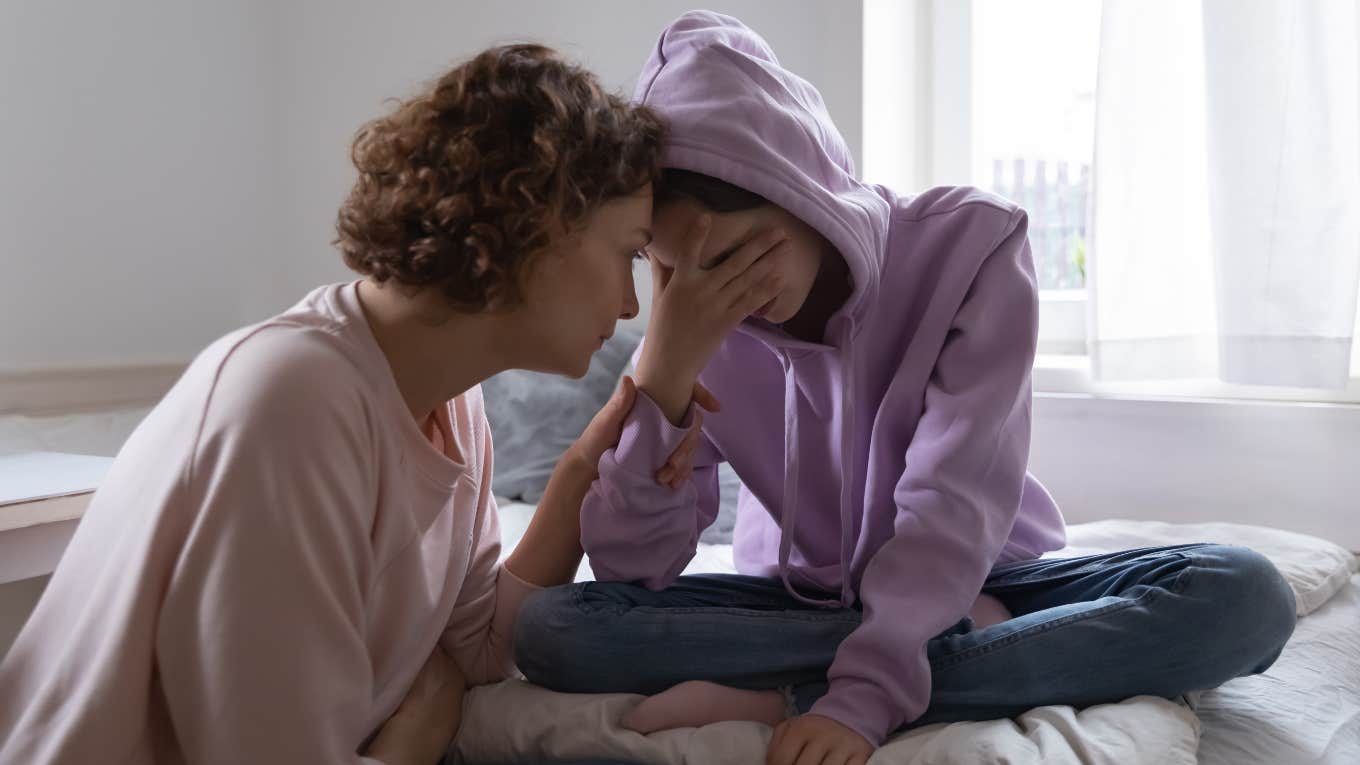After Her Daughter Is Sent Home For Dress Code Violations, A Mom Questions The School Allowing Tiny Cheerleading Uniforms
Young girls should never be told to change the way they dress based on male perception.
 fizkes / Shutterstock
fizkes / Shutterstock A mother expressed her anger after learning that her daughter was sent home from school for not following the dress code despite not wearing anything provocative or inappropriate.
In a TikTok video, Shasty Leah shared that her daughter being sent home from school because of the dress code wasn't the issue. The issue was the school administrators enforcing an outdated ideology that young girls should be covering up their bodies so that the boys around them aren't uncomfortable.
She argued that schools shouldn't allow girls to wear tiny cheerleading uniforms after her daughter was sent home for dress code violations.
Leah explained that her daughter had been sent home from school less than two hours before the end of the day because of a dress code violation.
She claimed her daughter left the house that morning wearing a long-sleeved shirt and blue jeans.
Administrators claimed the teen's outfit was "distracting to the boys," and Leah pointed out that instead of teaching young girls to cover up, young boys should be taught to stop sexualizing girls and using it as an excuse to blame them for gender-based violence. Unfortunately, school dress codes have been a longstanding debate and source of controversy for many people, including Leah.
A bias exists between what boys are allowed to wear versus what girls are allowed to wear.
According to a report from the Government Accountability Office, about 90% of dress codes prohibit some form of clothing typically associated with girls and women, including short skirts, tank tops, crop tops, leggings, and other form-fitting clothes. That's compared to the 69% of dress code policies that target clothing traditionally worn by boys, including sagging jeans and muscle shirts.
Leah insisted that if schools were that concerned with dress codes in the first place, then cheerleading and volleyball uniforms wouldn't exist. Young girls would be forbidden from parading around in their short skirts and cropped shirts, or the tight shorts that are usually worn for volleyball matches.
"We've got to do better as a society. As long as my child's parts aren't hanging out or taking a risk at falling out, I don't know why it matters what she wears," Leah ranted. "Your boy's sexual thoughts are more important than my daughter's education?"
She admitted that as a mother of boys, she has made it her mission to teach them to respect women.
"I have four boys, ages 29 down to 15. They were taught the same thing, don't sexualize women," she said. Leah acknowledged that she would never tell her daughter to dress any differently so that she could accommodate how men in the world would perceive her. That's their problem.
Leah recalled when she was sexually assaulted and the first thing people asked her was what she'd been wearing as if her choice of attire was to blame for the man who'd forced himself upon her. That type of mindset is the reason why so many women are scared to come forward with stories of sexual abuse or sexual assault because they will be made to appear as something other than victims.
What was she wearing? Was she drinking too much? If she was drinking too much, she shouldn't have accepted a ride from a strange man. She shouldn't have been drinking at all. Maybe if she wasn't wearing that short skirt, she wouldn't have found herself in that position. Time and time again, women are forced to blame themselves for the actions of men.
According to the National Sexual Violence Resource Center, rape is the most under-reported crime; 63% of sexual assaults are not reported to police. It's a fear of being shamed, of being told it's their fault. There's also the abhorrent reality that only around 0.7% of rapes and attempted rapes end with a felony conviction for the perpetrator. So, to go through an entire trial, only to walk away with justice being served is often a stark reality for too many women.
Leah insisted that if anyone in society sees men looking at teenage girls in any sort of sexualizing manner, the men should be punished. She pointed out that too many older women instead try to place blame on the young girls when it's the men in their lives that need to be punished.
She claimed that real men don't sexualize women or young girls, but adult boys do, and it doesn't give older women any excuse to take out their anger on young women because they're being conditioned to fear getting older due to how society treats women who age and get wrinkles.
"You women and y'all dress codes ... y'all are just mad because you don't have the body you had back in high school. We are not high schoolers. We don't have to have that body, but we don't need to be mad at these young girls for living their best lives."
Nia Tipton is a Chicago-based entertainment, news, and lifestyle writer whose work delves into modern-day issues and experiences.

